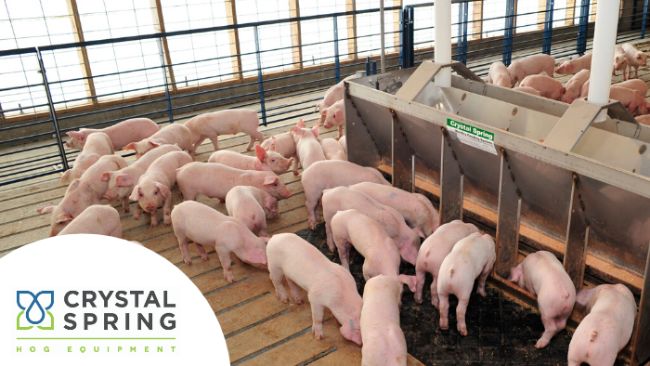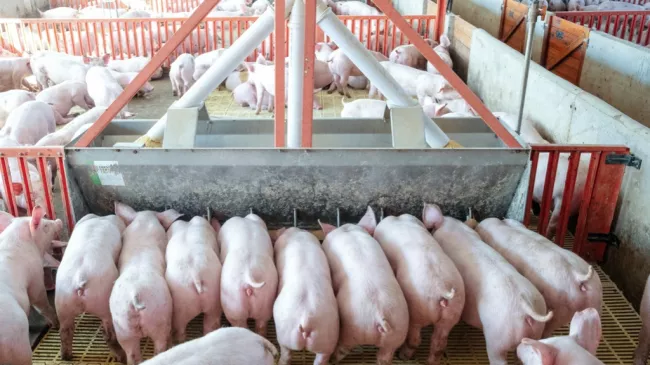
The importance of sustainability has been on the rise globally, as consumers are becoming more aware of the impact that their consumption has on the environment. In order to address this concern, Crystal Spring Hog Equipment conducted a research study with Pipestone Applied Research (PAR) to compare the water usage between wet/dry feeders and dry feeders.
Previous research, conducted more than 20 years ago, had already shown that wet/dry feeders use less water than dry feeders. However, Crystal Spring wanted to update the performance data and see the impact of their Adaptive-Flow™ drinker nipple technology, which was introduced in 2018.
The study found that the Adaptive-Flow™ feeder drinker nipples were able to reduce water usage by an impressive 53.4%. This means that their wet/dry feeders use less than half as much water as dry feeders with supplemental watering, without negatively affecting the pig’s health and growth performance.

These findings are important as they demonstrate that basic equipment like hog feeders can be engineered to improve sustainability in pork production. Additionally, it is important to consider the resources required to manage manure with high water content.
At Crystal Spring, sustainability is not just a buzzword for marketing their products. It is a core part of their identity as farmers, and they are committed to continually innovate better products for the sake of the planet and for pig farmers around the world.
Check out their hog housing solutions here.












